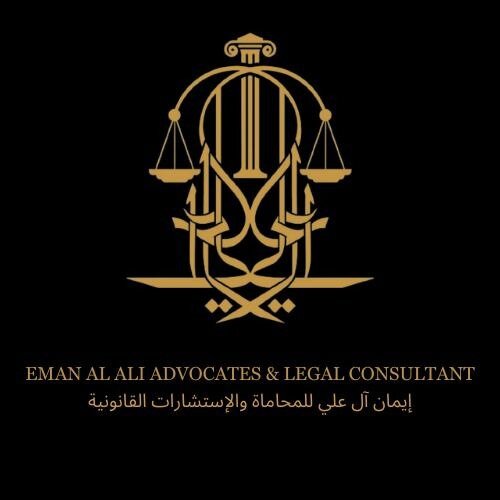Best Business Lawyers in United Arab Emirates
Share your needs with us, get contacted by law firms.
Free. Takes 2 min.
Or refine your search by selecting a city:
List of the best lawyers in United Arab Emirates

Mohamed Eid Al Suwaidi Advocates & Legal Consultants
30 minutes Free ConsultationUnited Arab Emirates Business Legal Articles
Browse our 5 legal articles about Business in United Arab Emirates written by expert lawyers.
- How Can Businesses Comply with AI and Legal Tech Laws in the UAE? (11 Practical Steps)
- AI systems and legal-tech tools are altering how companies function throughout the UAE. Yet, as innovation increases, so does the need for effective AI governance and compliance with local technology and data protection regulations. The UAE’s developing legislative environment compels enterprises to manage risks, safeguard personal data and promote transparency... Read more →
- UAE Corporate Tax Compliance in 2025: What Every Business Needs to Know
- Table of Contents:Introduction: Navigating the 2025 Compliance CycleThe Foundation of UAE's Modern Tax SystemCore Legislation and Strategic ObjectivesRoles of the Ministry of Finance and the Federal Tax Authority (FTA)Determining Your Tax ObligationsJuridical vs. Natural PersonsThe Concept of Tax Residency and Non-Resident NexusThe Mechanics of Tax CalculationTax Rates and the Domestic... Read more →
- Workplace Accident Procedures for Dubai Businesses
- Table of ContentsIntroduction: A Guide for EmployersImmediate Actions After an InjuryProvide Medical AssistanceSecure the SceneInternal NotificationOfficial Reporting Requirements in DubaiMinistry of Human Resources and Emiratisation (MoHRE)Dubai PoliceFree Zone SpecificsUnderstanding Your Legal Compensation LiabilityTemporary DisabilityPermanent DisabilityFatality, Diya, and Civil ClaimsCan a Manager Be Held Personally Liable?Assessing Your Insurance CoverageWorkmen’s Compensation InsuranceEmployer’s... Read more →
About Business Law in United Arab Emirates
The United Arab Emirates (UAE) is a major international business hub, known for its strategic location, strong infrastructure, and investor-friendly policies. Business law in the UAE is governed predominantly by federal and local regulations that facilitate economic growth while providing a clear legal framework for operations. The country's legal system blends Civil and Sharia law, with specialized laws in areas like commercial transactions, employment, and intellectual property. The establishment of Free Zones across the Emirates has further enhanced the business environment by offering foreign companies 100% ownership opportunities without the need for a local partner.
Why You May Need a Lawyer
There are numerous situations where businesses might require legal assistance in the UAE, including:
- Setting up a new company or establishing a branch office.
- Drafting and reviewing contracts or agreements.
- Navigating the complexities of Free Zone regulations.
- Handling employment disputes and ensuring compliance with labor laws.
- Protecting intellectual property rights and addressing infringement issues.
- Managing mergers, acquisitions, or restructuring processes.
- Ensuring compliance with local licensing and regulatory requirements.
- Resolving commercial disputes through litigation or arbitration.
Local Laws Overview
The key aspects of local laws relevant to businesses in the UAE include:
- The UAE Commercial Companies Law which governs company formation, management, and dissolution.
- Free Zone regulations that provide frameworks for foreign ownership and tax incentives.
- The UAE Labor Law, which outlines workers' rights, employer obligations, and employment contract regulations.
- Consumer protection laws ensuring fair trade practices and safeguarding consumer rights.
- Intellectual property laws, which align with international standards to protect trademarks, patents, and copyrights.
- Regulations related to anti-money laundering (AML) and combating the financing of terrorism (CFT).
- Tax regulations, with special emphasis on the implementation of VAT and corporate tax policies.
Frequently Asked Questions
What types of businesses can be established in the UAE?
Businesses can be set up as Limited Liability Companies (LLC), Free Zone entities, or as branch offices of foreign companies, among others, depending on the nature and needs of the business.
Can a foreigner own 100% of a business in the UAE?
Yes, in certain Free Zones and as per recent amendments to the Commercial Companies Law, foreigners can own 100% of a company in specific sectors.
What are Free Zones?
Free Zones are designated areas that offer business-friendly regulations, tax exemptions, and customs advantages, often allowing 100% foreign ownership.
How long does it take to register a business in the UAE?
The time frame can vary depending on the business type and location but generally ranges from a few days to several weeks.
What are the common taxes applicable to businesses in the UAE?
The UAE has implemented VAT and specific corporate taxes, especially on oil companies and foreign banks. However, many businesses enjoy tax advantages, particularly in Free Zones.
How do UAE labor laws impact businesses?
Employers must comply with various labor regulations, including employment contracts, working conditions, termination practices, and worker benefits.
Is arbitration a common method for resolving disputes?
Yes, arbitration is widely used in the UAE due to its efficiency and effectiveness in resolving commercial disputes outside of the court system.
Can existing businesses be restructured in the UAE?
Yes, businesses can undergo restructuring through mergers, acquisitions, or other methods, subject to compliance with relevant laws and regulations.
What protections exist for intellectual property in the UAE?
The UAE has comprehensive laws to protect trademarks, patents, and copyrights, aligning with international standards to safeguard intellectual property rights.
Are there specific business regulations during the COVID-19 pandemic?
Yes, the UAE government has introduced temporary relief measures and guidelines to support businesses affected by the pandemic, which are subject to change as the situation evolves.
Additional Resources
For further information and assistance, consider reaching out to the following:
- The UAE Ministry of Economy
- The Department of Economic Development in your respective Emirate
- UAE Free Zone Authorities
- Dubai Chamber of Commerce and Industry
- Abu Dhabi Chamber of Commerce and Industry
- Federation of UAE Chambers of Commerce
- The UAE Federal Customs Authority
Next Steps
If you require legal assistance, it is advisable to:
- Identify the specific legal issues or questions you encounter in your business operations.
- Consult with a qualified UAE-based business lawyer who can provide tailored legal advice and representation.
- Ensure the lawyer has experience in your specific industry and type of legal matter.
- Prepare all relevant documentation, contracts, and records for a comprehensive review by your legal advisor.
- Consider seeking a second opinion for complex legal matters.
Taking these steps will help ensure that your business is legally protected and compliant with UAE laws, facilitating smooth operation and growth within the region.
Lawzana helps you find the best lawyers and law firms in United Arab Emirates through a curated and pre-screened list of qualified legal professionals. Our platform offers rankings and detailed profiles of attorneys and law firms, allowing you to compare based on practice areas, including Business, experience, and client feedback.
Each profile includes a description of the firm's areas of practice, client reviews, team members and partners, year of establishment, spoken languages, office locations, contact information, social media presence, and any published articles or resources. Most firms on our platform speak English and are experienced in both local and international legal matters.
Get a quote from top-rated law firms in United Arab Emirates — quickly, securely, and without unnecessary hassle.
Disclaimer:
The information provided on this page is for general informational purposes only and does not constitute legal advice. While we strive to ensure the accuracy and relevance of the content, legal information may change over time, and interpretations of the law can vary. You should always consult with a qualified legal professional for advice specific to your situation.
We disclaim all liability for actions taken or not taken based on the content of this page. If you believe any information is incorrect or outdated, please contact us, and we will review and update it where appropriate.
Browse business law firms by service in United Arab Emirates
United Arab Emirates Attorneys in related practice areas.
Browse business law firms by city in United Arab Emirates
Refine your search by selecting a city.
















